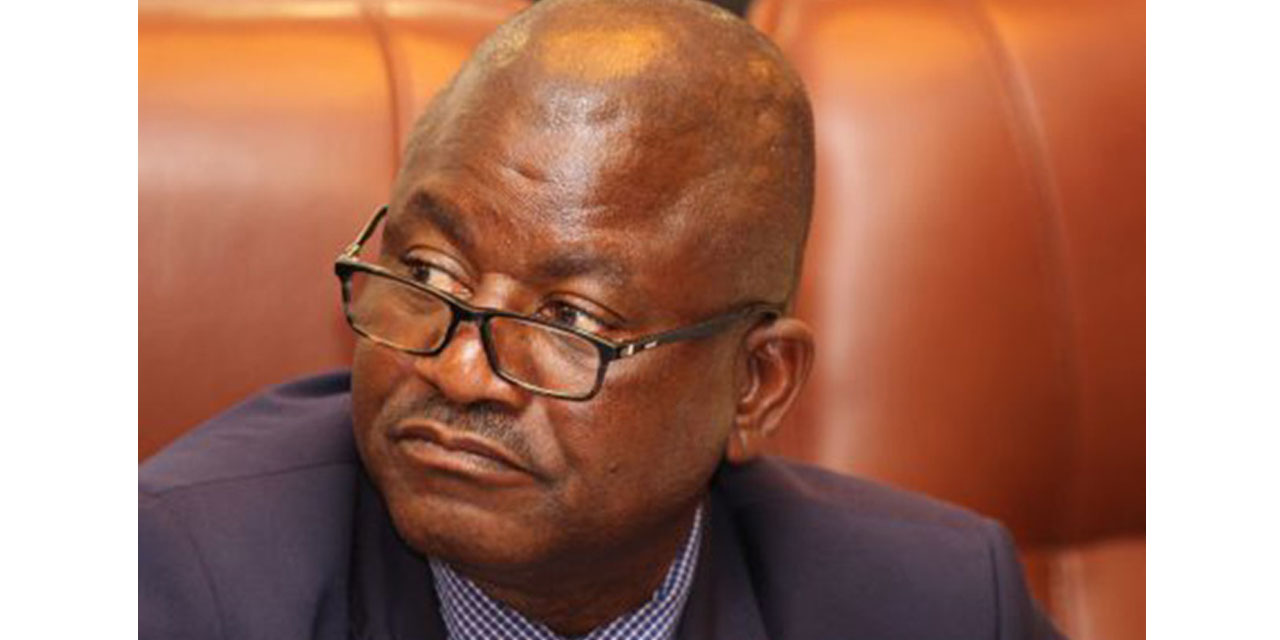Stefanus Nashama and Niël Terblanché
The central part of the country is facing a severe water crisis as dam levels continue to plummet.
Abraham Nehemia, the chief executive officer of NamWater, made this statement during a media briefing on Wednesday about the country’s water situation at the Von Bach Treatment Plant in Okahandja.
“Yes, we are facing a challenge with water in the central areas. But Namibia has to be there, and Namibia will be there. Whether it rains or not, all we need is to plan and find ways to get water,” he said.
The event was organised in collaboration with the Ministry of Agriculture, Water, and Land Reform, NamWater, and the City of Windhoek.
He explained that Windhoek, which is reliant on the Von Bach, Omatako, and Swakoppoort dams, is experiencing critically low water levels, with current capacities drastically reduced from previous years.
Insufficient rainfall and increased demand have exacerbated the situation, pushing the city’s water supply to its limits.
NamWater and the City of Windhoek have initiated a six-month initiative to increase awareness of water demand management strategies.
This urgent response follows observations that water levels at key dams are at a mere 18 percent, a significant drop from the 37.2 percent recorded last year.
The city’s authorities are pushing for a ten percent reduction in water usage, though efforts over the past year have fallen short of this target.
Recent emergency measures include activating an emergency borehole scheme and improving water reclamation processes to supplement the dwindling supply from the main dams.
Nehemia explained that the Kavango Link Project could be a potential solution to the water shortage problem.
“The idea of the Kavango link will just be a backup; it is not to pump every single drop of water,” he stressed.
Despite the delays caused by financial resource constraints and necessary preparations, this project remains a viable long-term plan.
Nehemia has estimated that the project will be expensive, with a cost of around N$7 billion.
There are also suggestions to pull water from the Zambezi River and desalinate water from the coast, which Nehemia said would be too expensive for the organisation, suppliers, and consumers.
“The ideas are good, but getting water from the Zambezi River will be costly. The desalination of water is not off the table. This is not an issue of NamWater or the City of Windhoek; it is an issue of all of us,” he reasoned.
Nehemia reports that there is ample water in the Kunene River, but the main challenge is treating and distributing it.
The Von Bach dam supplies water to central areas, including Windhoek. Currently, the water level in the dam is 11.3 Mm3.
Head of Business Unit Central at NamWater, Stephanus Mukuya, said scientifically, when it goes below 7.3 Mm3, it is considered empty.
“To maintain the water level, the dam is being filled with water from the Swakoppoort dam,” he added.
Despite these efforts, Windhoek’s Chief Engineer of Bulk and Waste Water, Sebastian Hussleman, has revealed that current strategies may not suffice if the population does not adhere to stricter water conservation practices.
He said the city is preparing for potential water shortages by developing alternative water sources and enhancing its infrastructure, which could include the construction of a new reclamation plant if necessary.
Husselman said that the city’s water infrastructure, last upgraded in the early 1990s with the construction of the Omatako Dam, is now inadequate for its growing population.
“Projections indicate that even with normal rainfall, the existing water supply would be quickly depleted, necessitating immediate and sustained conservation efforts,” he added.
The City of Windhoek is also considering compulsory water-saving measures, which could force residents to reduce usage by up to 50 percent.
These measures are indicative of the critical nature of the situation, as failure to achieve significant reductions could severely impact all sectors of the city, from residential to industrial, including essential services like road construction and institutional water usage.
The call for responsible water usage has never been more urgent, and residents of Windhoek will have to accept and deal with this dire situation.
According to Husselman, the community’s cooperation and adherence to the planned stricter water management strategies will be crucial in navigating through one of the most challenging periods for the capital’s water supply system.




